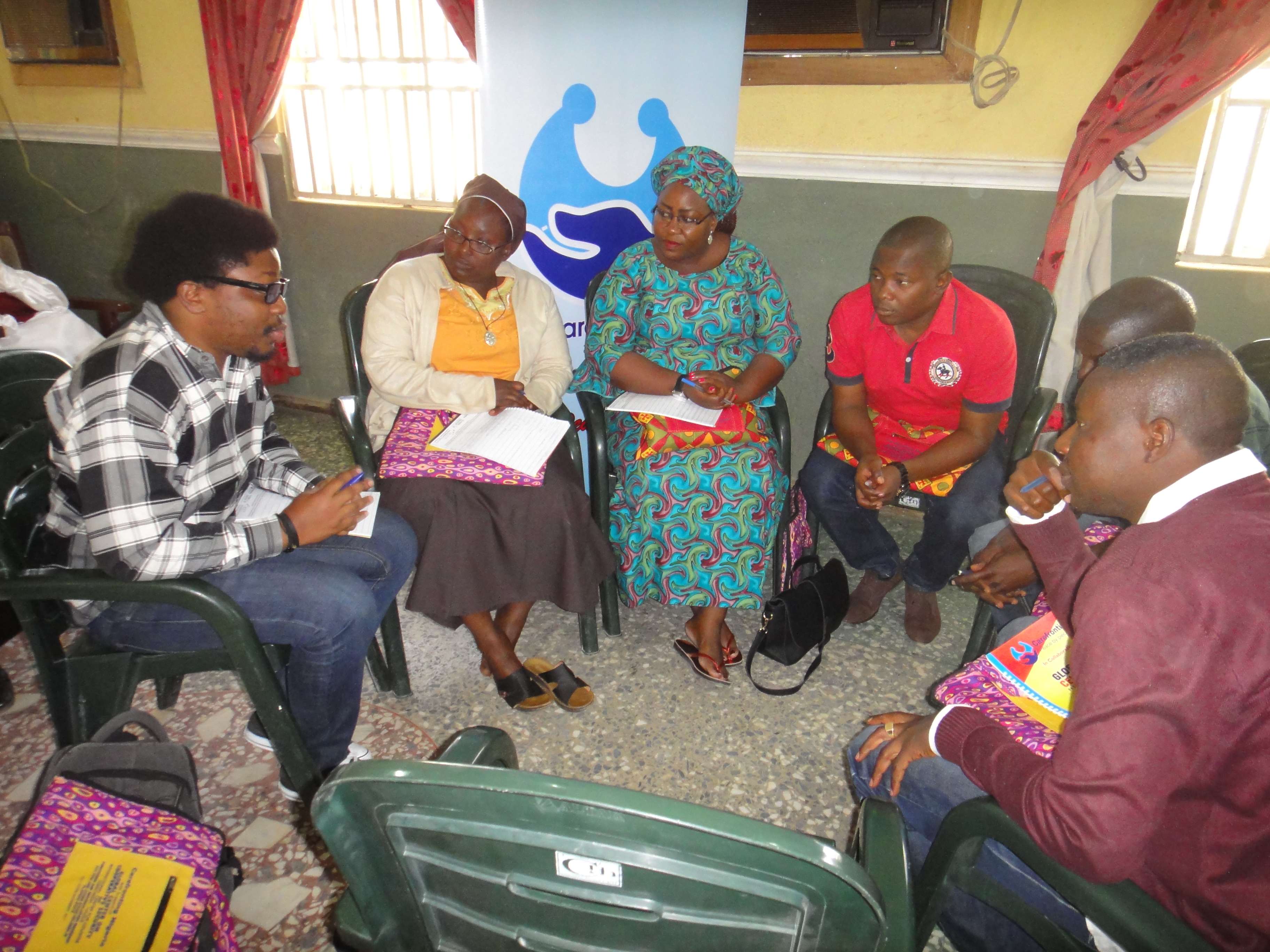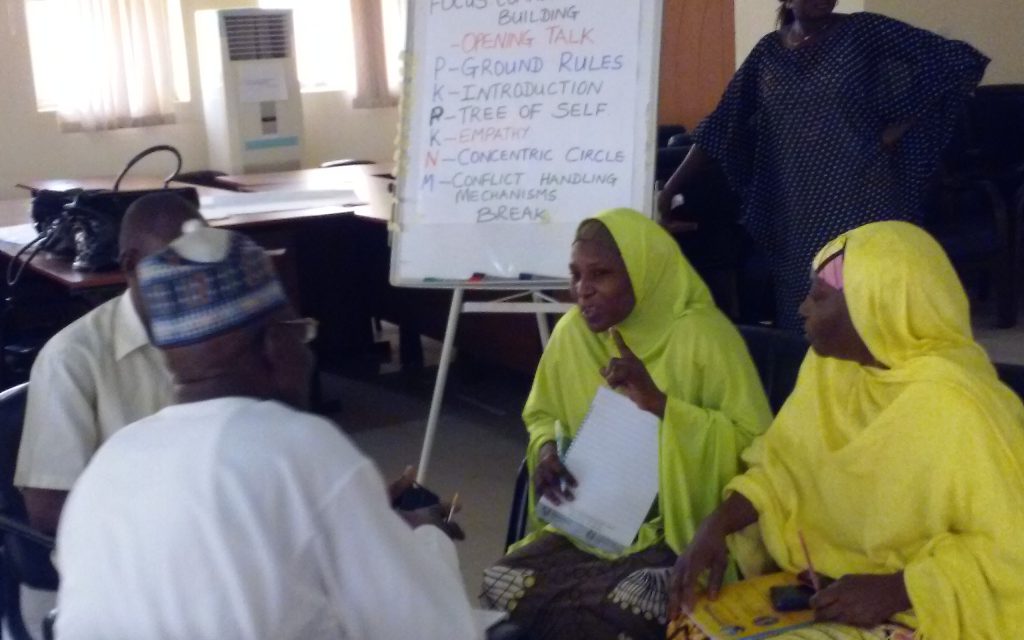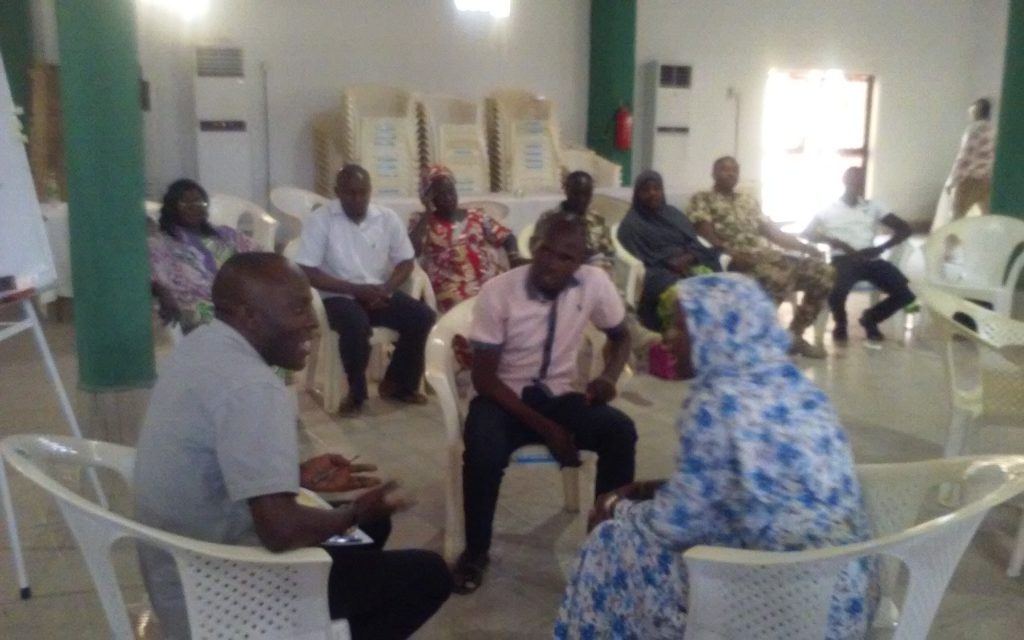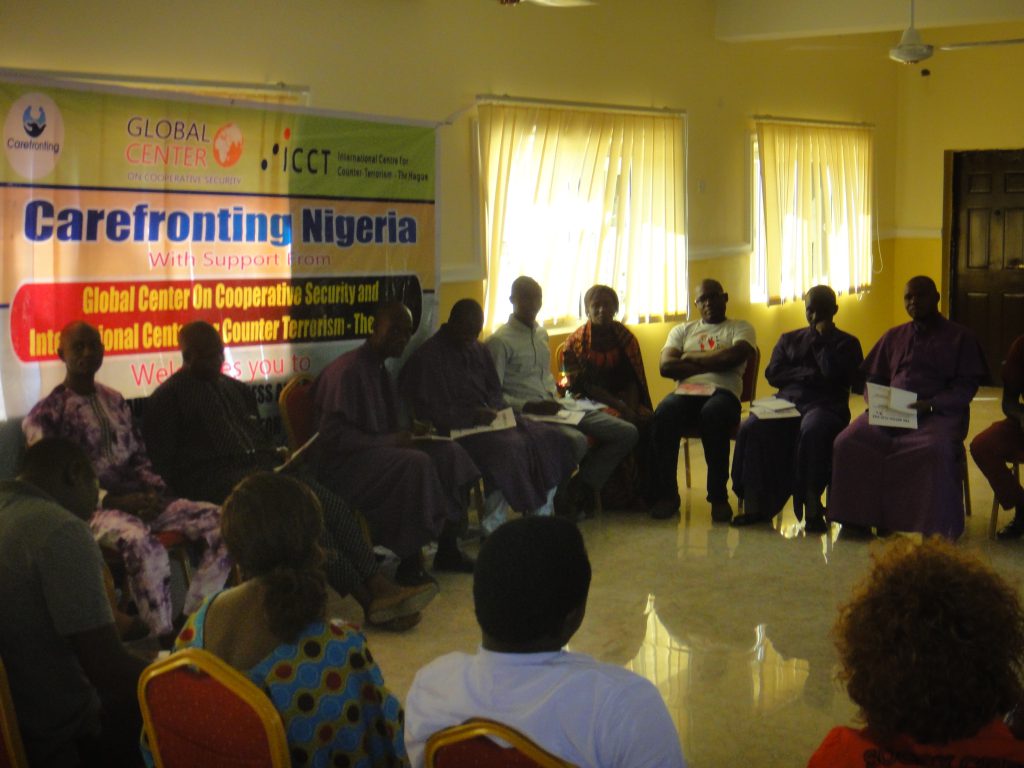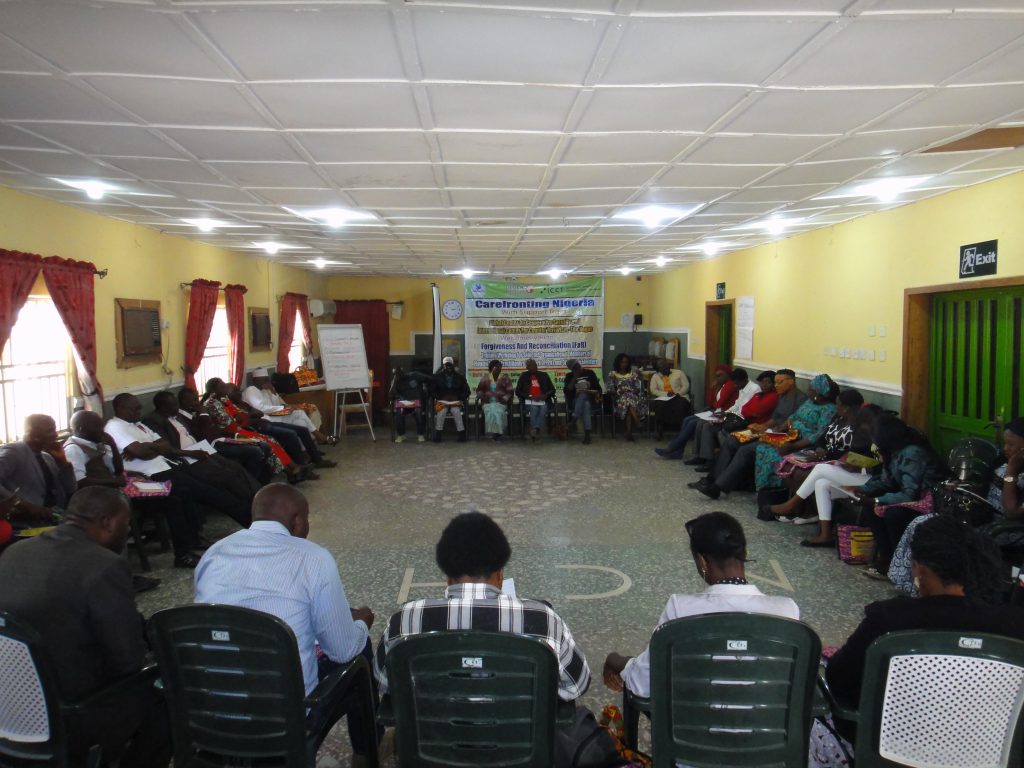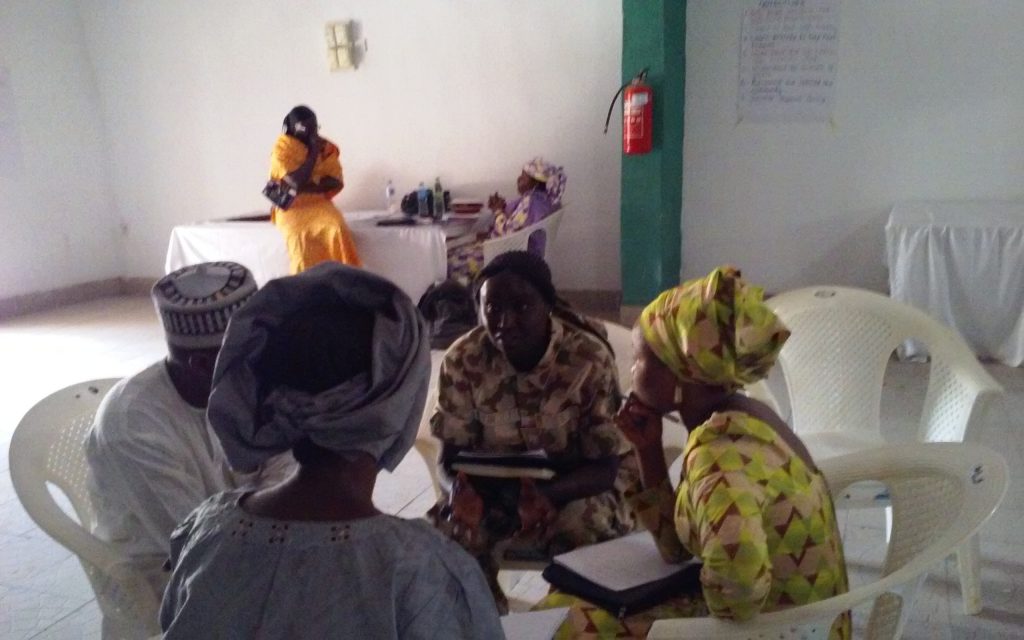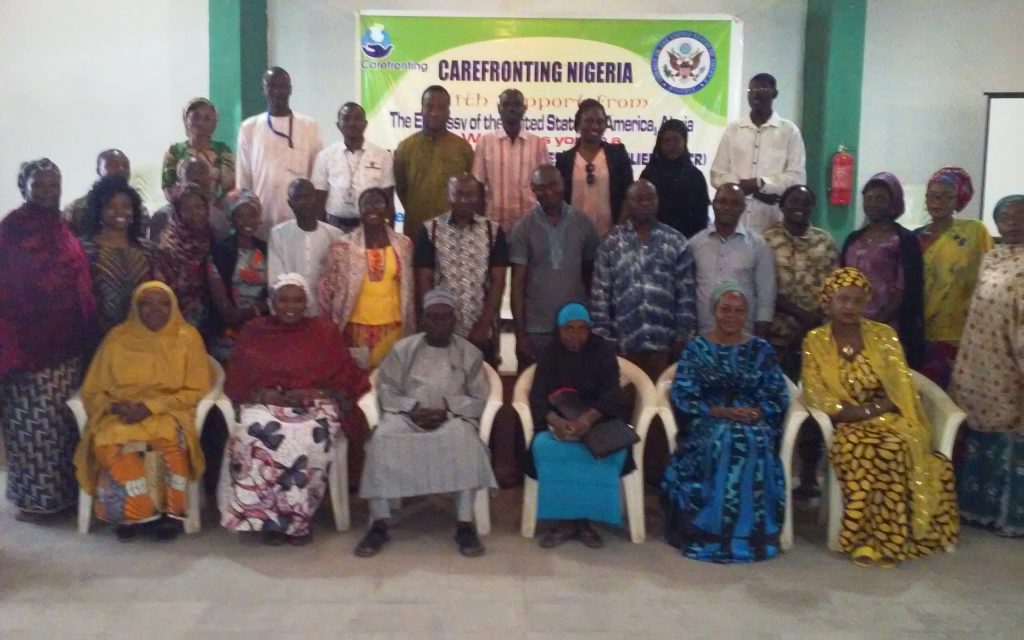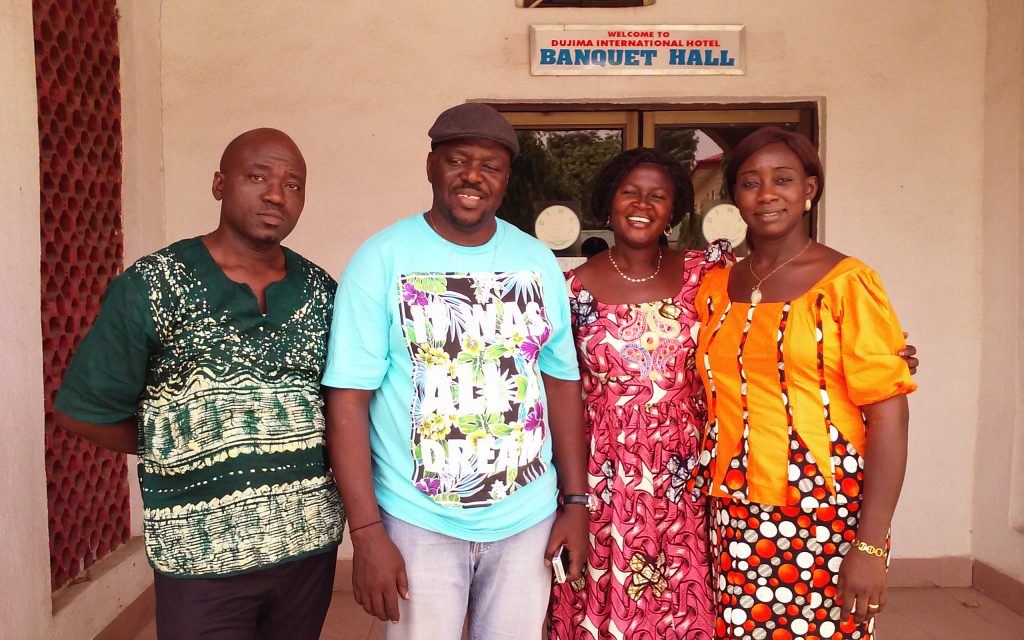Preventing and Transforming Violent Extremism (PTVE)
Carefronting with the support of the Global Center on Cooperative Security implemented a year-long project entitled ‘training of selected CSOs and NGOs in Borno state on trauma consciousness and resilience, community cohesion, forgiveness, and reconciliation’. Carefronting principally focuses on peacebuilding, conflict transformation, trauma consciousness, and PTVE, with a wealth of experience in healing and reconciliation.
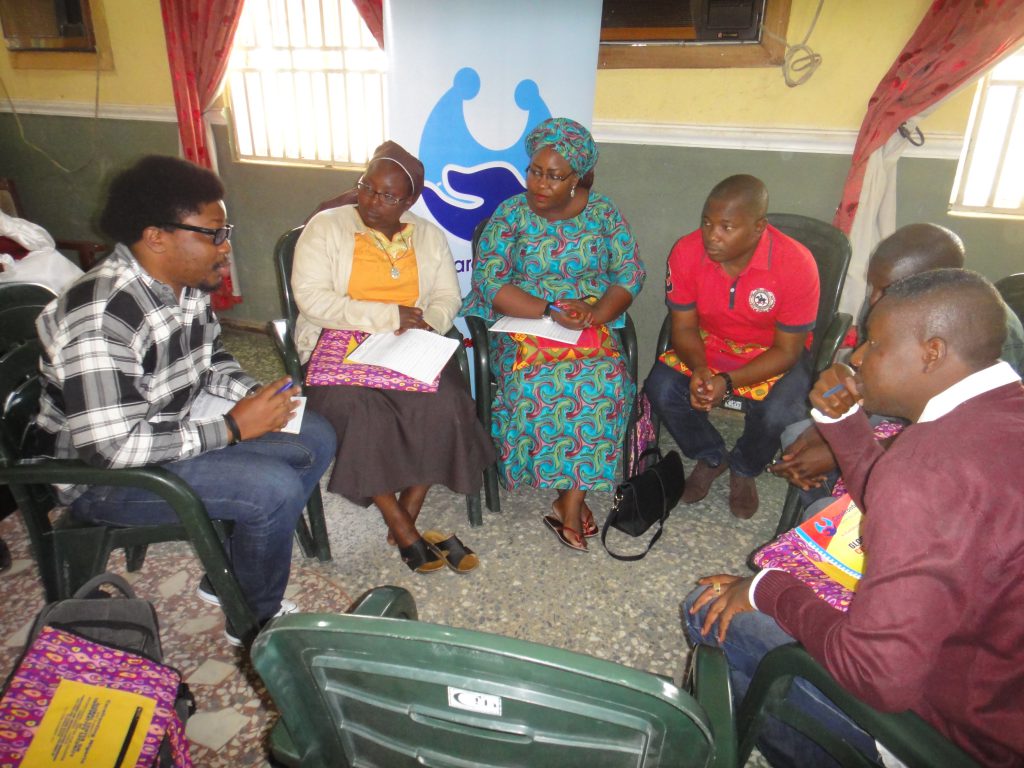
Acknowledging the absence of programs addressing the psychological needs of victims and survivors of violence in northeast Nigeria, Carefronting developed a project firmly rooted in the idea to equip local communities with the requisite skills to act as first responders to trauma in their locales. In this framework, community members themselves are empowered to become agents of change and are able to actively support their communities to overcome trauma and emotional pain. This, in turn, paves the way toward reconciliation and understanding, allowing communities ravaged by violence to heal and prosper. Likewise, communities also become more resilient and safer in developing robust coping mechanisms. Outside intervention in affected areas, such as Maiduguri, can be short-lived and dependent on the evolving security situation. Therefore, equipping local communities with the necessary skill to deal with trauma and emotional distress is a means to ensure the autonomy and self-sufficiency of these communities in this regard. This bottom-up approach helps to reduce their dependence on fluctuating external engagement and donor interest.
As a follow up and a part of the larger project, Carefronting with thev support of the United States of America Embassy, Abuja implemented several training workshops for CSOs and NGOs across Maiduguri, Adamawa, and Yola under the project ‘Healing, Reconciliation and Counter Radicalization in Selected Communities in the North East Focusing on Maiduguri, Damaturu, Mubi and Michika’, focused on trauma consciousness and resilience, community cohesion, and forgiveness and reconciliation. In particular, working with the same participants over several workshops for fifteen months including internship in a Trauma Healing Clinic in Jos, helped solidify and build on the skills and knowledge conveyed. Recognizing the need to provide communities across the country with Trauma literacy basic forgiveness and reconciliation skills, Carefronting developed a training manuals on these two issues (entitled Trauma Consciousness and Resilience (TCR) Basic, Advanced and Forgiveness and Reconciliation (FaR), which was distributed widely within and outside of Nigeria. Over 150 organizations within the country were reached, and the manual was shared with representatives of 39 countries at international conferences in Nepal, Kenya, and Italy. To ensure that manual distribution went beyond the handing out of the document, Carefronting accompanied the distribution activities with additional workshops to train recipients on key principles of the manual.
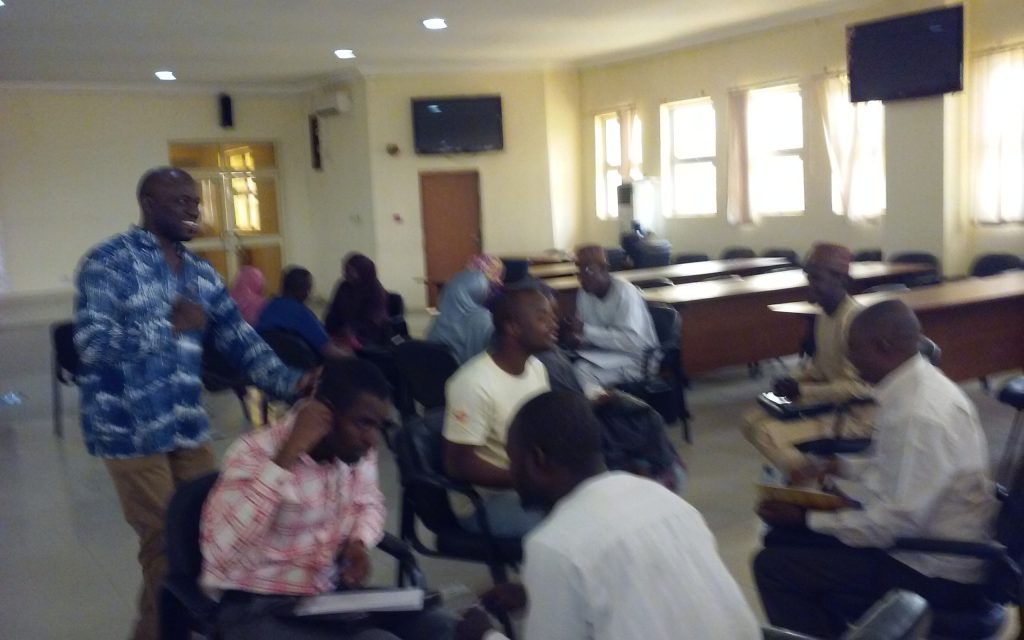
Through the help of diligent monitoring and evaluation exercises, Carefronting’s project has yielded important insights into current and prospective R&R activity in northeast Nigeria. Communities generally welcomed trainings on reconciliation, forgiveness, and trauma, not least because of Carefronting’s holistic approach, including victims as well as perpetrators into the narrative. Importantly, Carefronting’s approach also resonated with local police and security services, which further contributed to ensuring that all relevant stakeholders enhance their awareness of psychological well-being and trauma care. In line with this, it has also helped to demonstrate the need for inclusive approaches to security and the need to accompany physical reconstruction and material aid with psychological support to rebuild and bolster the fabric of communities in affected localities.
To sustain Carefronting’s successes, the organization recommends additional trainings in more communities across Nigeria’s northeast. This could be facilitated by means of a radio program in local languages.


